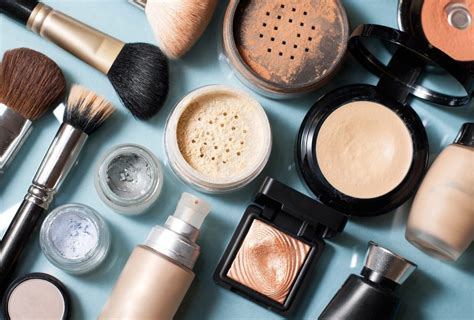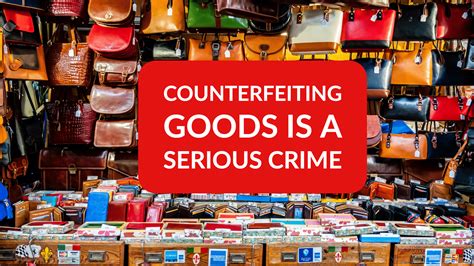what are counterfeit cosmetics ,is buying counterfeit goods illegal,what are counterfeit cosmetics, What is Counterfeit Makeup? Often referred to as knock off makeup, counterfeit makeup can be quantified as any mock or replica beauty product made to look, and even smell, .
Piedāvājums Eiropas lietotu auto tirgū ir krietni plašāks, un tieši tāpēc arvien vairāk Latvijas iedzīvotāju dod priekšroku auto iegādei no Mobile.de platformas. Lasi rakstu un uzzini, kā izvēlēties kāroto automobili no Mobile.de platformas un nodrošināt tā .

Dangers of Counterfeit Makeup
Counterfeit makeup products are often made with substandard and potentially harmful ingredients that can have serious consequences for the health and safety of consumers. These fake cosmetics may contain dangerous substances such as lead, arsenic, mercury, and other toxic chemicals that can cause skin irritation, allergic reactions, and long-term health problems. In some cases, counterfeit makeup has been found to contain high levels of bacteria and mold, posing a significant risk of infection to those who use these products on their skin.
One of the most concerning aspects of counterfeit cosmetics is the lack of quality control and regulation in their production. Unlike legitimate makeup companies that adhere to strict safety standards and undergo rigorous testing processes, counterfeiters operate in unregulated environments where there is little to no oversight. This means that consumers have no way of knowing what ingredients are actually present in the products they are using, making it a gamble with their health every time they apply these fake cosmetics to their skin.
Counterfeit Makeup Products Dangers
The dangers associated with counterfeit makeup products extend beyond just the potential harm to consumers' health. These fake cosmetics also pose a threat to the reputation and financial well-being of legitimate makeup companies. Counterfeiters often copy popular and high-end brands, selling their fake products at a fraction of the cost of the real thing. This not only hurts the original brand's sales but also damages its reputation as consumers may associate poor quality or adverse reactions with the legitimate company's name.
Furthermore, the sale of counterfeit makeup products deprives legitimate businesses of revenue and profits, impacting their ability to innovate, create new products, and invest in research and development. This loss of income can have far-reaching consequences for the entire cosmetics industry, leading to job losses, decreased competitiveness, and a reduction in overall consumer trust.
Why is Counterfeiting Bad
Counterfeiting is bad for a multitude of reasons, with the primary concern being the significant health risks it poses to consumers. As mentioned earlier, counterfeit cosmetics often contain harmful ingredients that can cause skin irritation, allergic reactions, and serious health issues. The lack of quality control and regulation in the production of these fake products means that consumers are essentially playing Russian roulette with their health every time they use counterfeit makeup.
In addition to the health implications, counterfeiting is also detrimental to the economy and society as a whole. The sale of counterfeit goods undermines legitimate businesses, leading to job losses, reduced tax revenue, and a decline in overall economic growth. It also fuels organized crime and illicit trade networks, as counterfeiters often engage in other illegal activities such as money laundering, drug trafficking, and human exploitation.
Counterfeiting also erodes consumer trust and confidence in the marketplace, making it more difficult for legitimate businesses to compete and thrive. When consumers are duped into purchasing fake products that do not meet quality or safety standards, it damages their faith in brands and the regulatory bodies tasked with ensuring product safety.
Is Buying Counterfeit Goods Illegal
Yes, buying counterfeit goods is illegal in most countries, including the United States. While the laws and penalties surrounding the purchase of counterfeit products may vary depending on the jurisdiction, it is generally considered a form of intellectual property theft. When consumers buy counterfeit goods, they are supporting an illegal industry that thrives on deception, fraud, and exploitation.
In the United States, the sale and purchase of counterfeit goods are prohibited under the Lanham Act, which protects trademarks and intellectual property rights. Individuals who knowingly purchase counterfeit products can face legal consequences, including fines and potential criminal charges. Additionally, buying counterfeit goods perpetuates the cycle of counterfeiting and contributes to the proliferation of fake products in the market.
Consumers have a responsibility to be vigilant and informed when making purchases, especially when it comes to products like cosmetics that directly impact their health and well-being. By choosing to buy from reputable sources and avoiding counterfeit goods, consumers can help combat the spread of fake products and protect themselves from potential harm.

what are counterfeit cosmetics 6. PowerStore intelligently automates with 5x better data density. 6. PowerStore delivers 5x better data density than Pure FlashArray//X20. 6. 6 Based on Dell internal analysis using publicly available specs in August 2023 comparing maximum effective capacity for PowerStore 1200 and FlashArray //X20.16GB DDR3-1600 SODIMM Kit (2 x 8GB) TAA Compliant - 16 GB (2 x 8 GB) - DDR3 SDRAM - 1600 MHz DDR3-1600/PC3-12800 - 204-pin - SoDIMM
what are counterfeit cosmetics - is buying counterfeit goods illegal